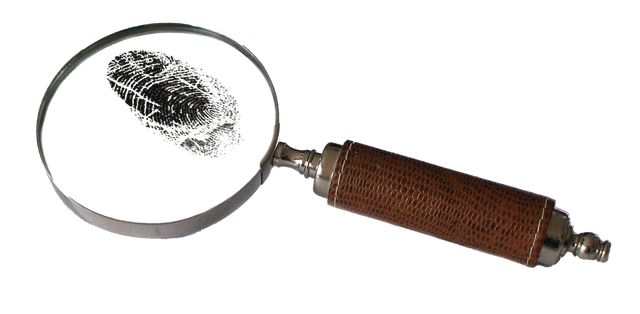Criminal Profiling - Facts Over Fiction

Introduction
Today I would like to discuss one of the most interesting aspects of criminal psychology, which has inspired tons of great books, movies and TV series - criminal profiling. Like other concepts in psychology – popularity amongst the general population is a double-edged sword. From one point of view it’s a great thing that certain aspects of our profession, no matter the field, is reaching more people, thus becoming more understood and accepted by others, but from another point, the more the people are – the more the interpretations, leading to misconceptions, myths and eventually harming the psychological concept at hand.
As I said it many times, one of my goals here on Steemit, especially, being a part of the @steemstem community, is to talk and clarify certain topics of psychology, in some way debunk them and present them as they truly are.
Working mainly in the field of criminal psychology, I could say that there are a lot of concepts which fall into this section, and if you’ve read some of my previous articles, you’d know that I have started discussing some of them such as the polygraph, analysis of non-verbal communication, application of criminal psychology in the private sector and so on.
Below I would present a real case and a real analysis that was done to it, in order to illustrate today’s topic. Of course, the information would be summarized and not written in a format directly taken out from the official documents, as I do not think that such practice is a good one.
I would also try from now on to keep the same format with real examples from the practice (if present) to illustrate the theory I present, backed up with science (whenever possible), so please give me feedback on the structure of this article also, especially if you are a @steemSTEM member, so that I could know if it is a good approach for future content.
So let’s begin with our case
Even though it was a warm summer night, after 12-hour shift, walking home on foot was the last thing she wanted to do. She decided to grab a cab, despite her office was not far from home. She looked at her phone – it was only few minutes past midnight.
The cab dropped her on the corner of her street – just a few meters from her home. It was dark and silent street. She had been walking this street for years and was used to it, but this time it was different. Something felt wrong. She felt a presence – someone was watching her. She grabbed tightly to her purse and increased her pace. Suddenly something pulled her hair back as she felt a strong hit on her head. She felt her knees weak and her head dizzy. The grasp of her offender tightened as she felt a sharp sting on the left side of her neck. She fell on the ground and she felt two hands turning her on her back. It was then when she saw a young white man – around 30 years old, thin with short black beard, wearing a blue shirt.
He grabbed her ankles and started dragging her away from the street in the nearby grass field. Her shoes fell off. She instantly started screaming for help, as she was resisting him. He didn’t say anything. He didn’t ask for anything. He took her pants and tore her panties off. In the moment he released one of her legs, she immediately kicked him kicked him in his private place and he squinted in pain, releasing his grip. She instantly got up, ignoring her injuries, she took her pants and purse and ran away home, where she called the police.
A few days later, a call was received from the police, asking if a criminal profile of the offender could be created in order to help the investigation. I will briefly discuss the profile we did, but before that let’s clear out

What is criminal profiling?
Criminal profiling has not so long but very diverse history of development. Criminal profiling is a combination of the study of crime and criminal behaviour – criminology, the study of mental health and pathology – psychology and the assessment and examination of the physical crime evidence.
In the professional field, some experts argue that criminal profiling could be universal, based on statistical analysis. Others absolutely disregard such possibility and state that every case is individual and the personal experience of the forensic expert is the most important factor for an accurate profile. The truth is that a given profile is not universal, not it is enough to be based on certain expert’s personal opinion or intuition.
To people, who are not professionals the term criminal profiling often is confused with psychological assessment (psychological portrait), others mistake it with risk assessment and there are people who pretend to be criminal profilers, who’s work is based on their psychic gifts. All these three are what criminal profiling is NOT.
As stated above, criminal profiling is a combination of different processes, all equally important. But if we have to put it into one sentence, criminal profiling is the process of identifying behavioral patterns, personality traits, as well as demographic or biographic information of an offender based on the specifics of the crime that was committed. It is important to note that criminal profiling cannot substitute in any form a police investigation. So forget about all that mumbo-jumbo from all your favorite criminal movies and series, where the main character, usually in the role of a consultant, resolves every case, solely relying on his excellent analytical skills and profiling often even mocking the police officers. The goal of criminal profiling is not to substitute the criminal investigation, but rather to be a tool of supporting it. Criminal profiling is used to narrow the specter of possible subjects to a more reasonable number from the hundreds or thousands of possible suspects.
Criminal profiling is not a panacea – it’s important to state it rarely points to the exact person who committed the crime. But this process is really valuable in developing a manageable set of clues as to who may have been responsible for the crime.
From one aspect, the quality of criminal profiling relies on the quality of the information and analysis done. Criminal profiling is often using data collected on previous offenders who have committed similar crimes. This allows the expert to seek for behavioral or psychological patterns in his current offender.
From another – the quality of criminal profiling relies on the expert. A good professional profiler should be very well educated in the forensic and behavioral sciences.
What is a criminal profile?
So far we’ve discussed what stands behind the process of criminal profiling. But in the end, the final product of this process is what is most important and in this case it is called a criminal profile.
According to Brent E. Turvey, a scholar in Forensic Science and Criminology and author of various forensic books,
A criminal profile is a report that describes the investigatively relevant and/or probative
characteristics of the offender responsible for a particular crime or a series of
related crimes based on a thorough crime scene analysis.
A true criminal profile must begin from analysis of the crime and crime scene as well as the victimological information which are the basis of the logical and evidence based arguments about the offender which follow them. This means that no criminal profile is accepted as valid if crime analysis and proper victimology were executed prior any other conclusions and assessment about the offenders psychological traits and demographic details.

What are the key components of criminal profile?
THRESHOLD ASSESSMENT
According to Brent E. Turvey
A threshold assessment is an investigative report that reviews the initial physical
evidence of crime-related behavior, victimology, and crime scene characteristics
for a particular unsolved crime, or a series of potentially related unsolved crimes,
in order to provide immediate investigative direction.
The threshold assessment should include what information generally known of the events at hand, also what is left unknown and any suggestions explaining what might have happened. It is important to know that this step of the process should not be mistaken or presented as a criminal profile.
VICTIMOLOGY
Simply put, victimology is an analysis of all available victim information.
Such information includes victim’s sex, age, height, weight, family and friends, degree of education, current employment and residence. Victimology also includes the victim’s background information and current lifestyle, including habits, hobbies, criminal and medical records.
Victimology is very important part of determining the context of some crimes.
In some cases, the whole crime analysis and the generated criminal profile may be dependent upon the information collected in this process.
The main purpose of victimology is to allow the expert to create an accurte assessment of that victim’s risk of becoming a victim of a particular type of crime based on the above mentioned information such as sex, age, lifestyle etc., especially during the events preceding the crime at hand. Victimology is also valuable in discovering links between different cases.
CRIME ANALYSIS
A crime analysis or also called crime scene analysis is a process in which the expert examines and interprets the behavioral evidence for the crime at hand or a series of related crimes.
This means that this process is based both upon victim behaviors, offender behaviors, but also includes environmental circumstances relevant to the crime at hand and are logicаlly inferred from the cаse documentаtion, or reconstructed by the аppropriаte forensic speciаlists. It is important to note that every reference or assumption made by the expert, should be supported by facts or logically connected to the crime and events at hand.
CRIMINAL PROFILE
The criminal profile must include what we call ‘offender characteristics’ which refers to any attributes that the examiner ascribes specifically to the unknown perpetrator/s responsible for the crime at hand. Such information includes details about the criminal/s physical, psychological, social, demographical or relational status.
The criminal profile could also include predictions about the usual behavior and status of the offender before, during, and/or after the crime at hand. Another very important aspect of the criminal profile is describing the emotional and psychological status of the offender. It usually includes suggestions before, during, and/or after the crime. Suggestions about the offender’s current residence, or prior the crime happened is also beneficial and part of the criminal profile.
A very important aspect is the hypothetical or actual connection with the victim, the relation of the criminal towards such types of victims and so on.

The analysis we did
Below I would mention a summary of what we did as analysis and profile of the offender.
After the above mentioned incident was reported to the police, it became clear that this was actually the third case in the past two years in the same neighborhood at the same time of the night. All the victims were women between 50 and 60 years old, working late night shits and walking home alone after work. These factors make these women vulnerable to assaults such as rape, robbery and even murder.
The analysis of the crime and the crime scene suggests that the offender has initially planned his crime scenario and is informed that in this area of the city at this time of the night, women are returning home from work. He attacks his victims from their backs, having prepared a sharp object to help him take control of the situation. This could also indicate that he is not very confident and probably not so experienced offender. Based on his behavior it could be argued that the offender is lacking positive experiences in his life. He could be described as a person, who is lacking sexual experience and wants to regain his masculine position via aggression.
Taking into account the fact that all the rape attempts happened in the same neighborhood it could be argued that the offender is familiar with this area of the town, probably living or working nearby, and perhaps walking on foot himself.
He could be described as a white man, 30 years old or below, physically weak, with low to medium level of intelligence. It could be argued that he lives alone or with a family member, but does not have his own family, wife and children. Probably he was raised by his grandparents or in a foster home. It could be said that his emotional life is poor with serious social deficits. These factors could be a reason for his aggressive behavior towards others, especially elder women. He is lacking healthy coping mechanisms thus resolving his issues with basic actions like aggression and violence. He could be described as unconfident and introverted person, living in isolation in his own fantasy world, avoiding all kinds of confrontations with others he finds stronger than him. His motives could be provoked mainly by his wish to grant his fantasies of a strong masculine figure, so that he could feel personal significance and importance which he lacks in his real life.
What happened
Few days after our analysis and profile of the offender, the police found a guy who matched the profile. He was in his mid 30ties who was working in a manufacturing factory nearby. He had no alibi for the nights of the crimes and after being interrogated he confessed for his crimes.

Conclusion
So as you see, contrary to what we are being fed by fictional books and Hollywood, there is a lot of work behind the creating of criminal profile. In order for such process to be successful, every single step must be accurately executed by a group of professionals who know what they are doing. Such task is extremely responsible and in no means one could say easy and magical.
Hopefully this article was interesting for you to read. If so, please give me feedback by commenting, or support me with an up-vote and/or re-steem. I am always open to reasonable discussions, so if you like, please share your thoughts in the comment sections.
If you would like to read more similar and even better content, visit the #steemSTEM, where we aim to put “facts over fiction” discussing various scientific topics from physics to psychology !
Sources:
Pictures: 1; 2; 3; 4; 5;

Contribute STEM content using the #steemstem tag | Support steemstem authors | Join our curation trail | Visit our Discord community | Delegate SP to steemstem
I like it. Debunking and the new little changes.
It takes time to find a format and then even get out of the usual format. I am still trying to bring something new.
I like profiling, with the mention that judging someone only by profiling is probably not that foolproof.
Additionally, having everyone profiled is even worse :D
I would like to believe that nobody uses this to their own advantage and that abuse is not usual.
Other than that it is a great tool to use!
Thank you for your feedback!
Profiling is not flawless, but when done correctly it's a valuable tool supporting investigations.
Oh @dysfunctional, I finally had the time to carefully read and take part in this discussion. My weekend was beyond chaotic!
Right ...
Well, first of all, let me just say that I love your new approach to delivering content! You have just managed to make your posts even more engaging :)
I was particularly drawn to the The analysis we did part of your writing. I was fascinated by the inferences made about the offender based on specific ways he chose to engage with his crime and victims. Eg. seeking to regain his masculine position via molesting older women, and how his lack of confidence/experience is seen on his attacking his victims from behind.
I appreciate very much how motivated you are towards debunking the fantasized ways situations such as this are portrayed by the media :)
Thank you for providing us with yet another wonderful read my dear. I wish you all the best always!
In situations like these I feel sorry that there are no heart reacts to the comments :)
Thank you once again for taking time to read, engage and give feedback on my content I am sure that you know that it means a lot!!
I absolutely understand how you feel during busy days, and I could kinda get when that happens, if a Friday post by you is not presented :(
Hopefully it's for the best and your effort pays off!
Thank you once again, dear :)
This is a very interesting post my ex teacher now study criminology i will send him the link, you write many interesting things, thank you!
I'm glad you enjoyed this article :)
Hi @dysfunctional!
Your post was upvoted by utopian.io in cooperation with steemstem - supporting knowledge, innovation and technological advancement on the Steem Blockchain.
Contribute to Open Source with utopian.io
Learn how to contribute on our website and join the new open source economy.
Want to chat? Join the Utopian Community on Discord https://discord.gg/h52nFrV
This post has been voted on by the SteemSTEM curation team and voting trail in collaboration with @utopian-io and @curie.
If you appreciate the work we are doing then consider voting all three projects for witness by selecting stem.witness, utopian-io and curie!
For additional information please join us on the SteemSTEM discord and to get to know the rest of the community!
Wow! This is such an interesting article! The approach you have chosen really catches the reader! You should definetely continue writing your articles presenting a real case!
I am curious what part of his behavior raised the hypothesis described above?
Thank you for reading and for your feedback!
There was a similar behavioural pattern in his other crimes too. He did't speak to his victims, always striking from behind, with a weapon at his hand. Usually older women are victims of a lot younger men. These men have emotional and sexual deficits often a result of their family environment.
Oh, it is really really interesting what you do for a living! :D I am looking forward to your next article :)
Thank you! You are always welcome to my blog :)
I never knew that criminal profiling involved this detailed steps.
Really liked how criminal profiling was used to solve the case
Thank you for reading! I'm glad that you have enjoyed it :)